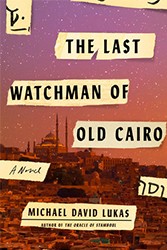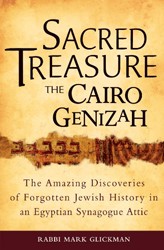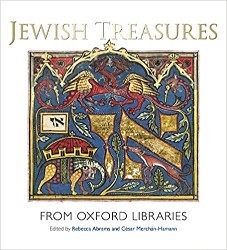From the Rohr Judges
Tamar Yellin is an articulate, intelligent, and passionate defender of the value and the majesty of the traditions of Jewish literature; and it is not surprising as a result that she has produced a novel which serves both as a passionate defense of that tradition and is a noteworthy contribution to it. In The Genizah of the House of Shepher, which is loosely based on episodes from the writer’s life, a contemporary scholar gets wrapped up in her family’s history with the manuscript known as the Shepher Codex. The adventures that ensue explore Jewish time and Jewish space. The streets of Jerusalem from a century ago open up to the reader as if one is watching an old newsreel; and characters from the book argue, think, talk, and read the living and lived debates of Jewish history. If the novel itself has its own secret manuscript hidden within it, that manuscript is nothing less than much of modern Jewish life writ small; to pack all that in is a remarkable achievement for any work. In short, this is a book for people who are deeply in love with books, with literature, and with Judaism.
Excerpt
Tel Aviv is not like Jerusalem. No temples were built here. No messiah will come. In all the vistas of history it is nothing but dunes.
The nights in Jerusalem are cool; the nights in Tel Aviv are mild and sweaty. Jerusalem air is full of pine and spices. Tel Aviv air is full of tar and sand.
Once a Jerusalemite always a Jerusalemite. Yet how many Jerusalemites flee to Tel Aviv. If I lived here I couldn’t choose between them. My soul would belong to Jerusalem, my body would belong to Tel Aviv.
Tamar Yellin On…
How She Writes
I work up a ladder in the attic of my weavers’ cottage. For years it was a dark, dusty hole, filled with memorabilia of my past life.
Now it is my eyrie, my “high place.” It’s the brain of the house. I feel I need to be high up to do brain-work.
There’s no view, only a skylight. But hanging on the wall directly in front of my desk is a picture of a garden walk sheltered by laburnums, leading to a stone pedestal. I imagine that the pedestal is my ultimate goal. It’s an image of destiny. But of course, I can’t enter the picture, so I never get there
Her Trip to New York as a Rohr Finalist
The main highlight of the trip was getting to meet the other writers. That was what I was looking forward to most. Where I live in the rural north of England, it can be rather an isolated life for a writer, which is not always such a bad thing, but nevertheless, I’ve always had this thirst to meet with other writers, with my contemporaries. The internet facilitates that to some extent, but there’s no substitute for meeting and conversing face-to-face. I was determined to snatch every moment I could to sit in the hotel bar with them, to get to know them, talk about their books, share a few jokes… Actually, our conversations covered rather a wide range of subjects, from writing about the Holocaust to Buffy the Vampire Slayer!
What I didn’t expect was that the organizers of the prize would make everything so haimisch for us — that there would be so much wonderful food!
Being a Part of a Writing Community, Specifically the Sami Rohr Jewish Literary Institute
When I was a young girl, wanting to be a writer, I always had this dream of being part of a salon, a sort of Parisian Left-Bank group of authors who would get together in cafes and drink espresso and talk about Literature. This is perhaps the next best thing, especially as I don’t actually like espresso. It’s not that one needs to be part of a community in order to write — I’m actually something of a lone wolf, as I think a lot of writers are — but, having written, and being already some way along one’s creative road, it is inspiring and, in a way, it gingers you up to encounter these other minds.
With all the modern advances in communication, there is still no substitute for face-to-face conversation or for breaking bread together. Jewish identity is perhaps more various now than it has been at any time. The question of what makes writing Jewish is keener than ever. By embracing the full variety of new writing and raising its profile this project can only enrich the culture. In the future I hope to see writers from across Europe and beyond emerging to engage in our conversation.
Challenges of Writing Fiction
Getting it right. I write and write and write and maybe thirty per cent of it makes it to the final cut. As Kafka said, “All things resist being written down.”
Inspirations
Writing is in my blood. My grandfather, Yitzhak Yaacov Yellin, was a writer, and his book, Avotenu (Our Ancestors), was always on our bookshelf when I was growing up. Whenever I looked at that yellow spine on the shelf I knew that being a published writer was possible.
The Bronte sisters were my great literary heroines when I was young. Yes, I know, that sits rather oddly with Avotenu. But that’s my dual heritage. Yorkshire and Jerusalem. Now when I’m looking for inspiration I will read a page or two of Katherine Mansfield, W. G. Sebald, Primo Levi. My sources of inspiration are very eclectic.
Advice for Emerging Writers
It’s so hard to get noticed nowadays. Even a good book can slip under the radar. Prizes are what get books noticed in these times, but not all the best or most deserving books win prizes.
Frankly, my heart goes out to the struggling writers out there. I’d tell them: Persevere. My novel took thirteen years write and another two years to find a publisher. It was turned down by half the publishers in London. I was also told by an agent that it wasn’t the sort of book that would appeal to the American market. Write with all your heart and soul and intelligence — love writing, because that is what matters most. But keep going, because success when it comes is very sweet.




